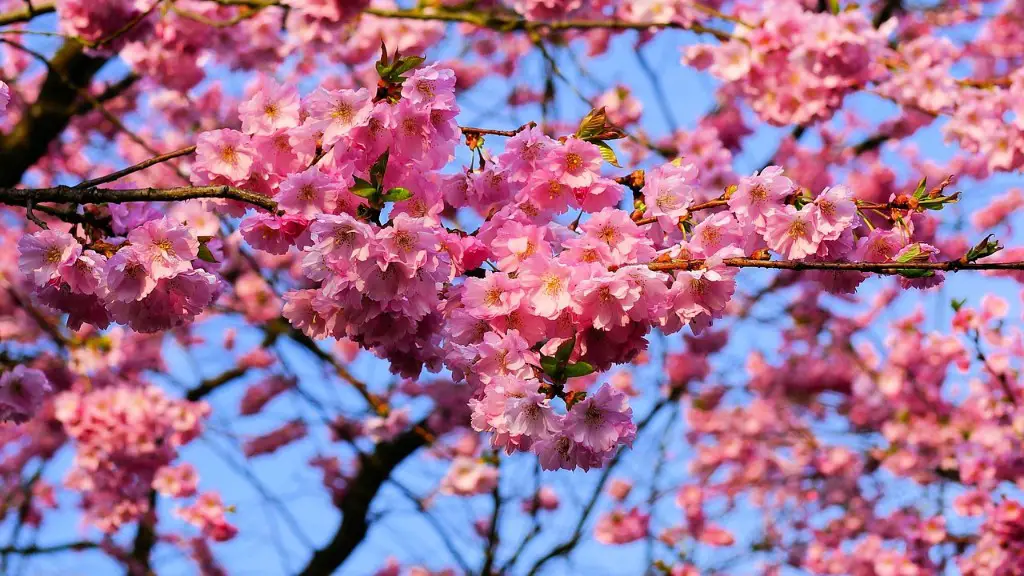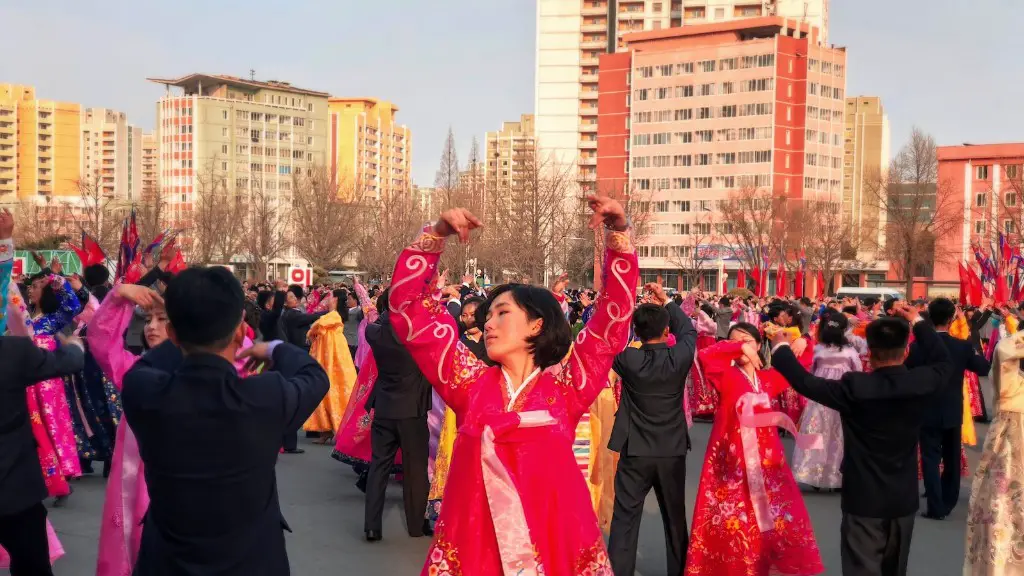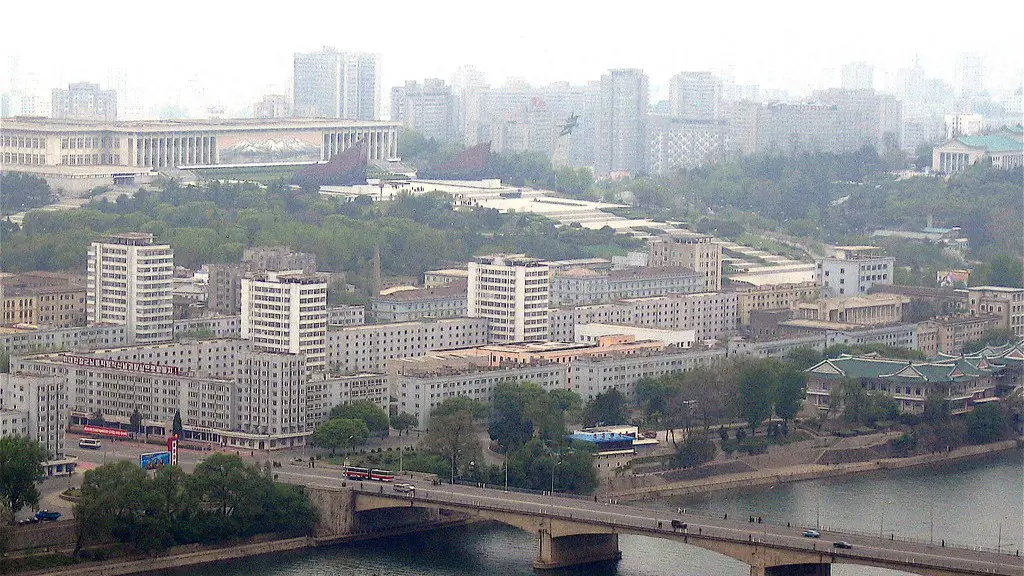Daunting questions abound when the topic of life in North Korea arises. How do citizens manage to exist in one of the world’s most controlled and sheltered countries? How do they co-exist in an increasingly monitoring society, under the controlling eye of a single-party rule? How is daily life affected by a strict, no-tolerance censorship regime? In this article, we will explore the various aspects of life in North Korea and examine how people live in one of the world’s most isolated countries.
North Korea is a truly unique country. It is one of the few remaining so-called ‘communist’ countries in the modern world, and it is unlike any other nation in its approach to totalitarianism. It is a nation of almost complete seclusion from the outside world, with a population that is shockingly under-educated and ridden with poverty. To this day, North Korea remains shrouded in mystery, making it difficult for outsiders to comprehend what life is truly like for the citizens there.
One of the features of life in North Korea that is particularly difficult to understand from an outsider’s point of view is the lack of freedom of speech. The government exerts almost total control over its citizens, and those who dare to express any form of dissent are often arrested and tortured. This has created an environment where a true, open discourse is simply not possible. The government has also been known to strictly monitor the number of visitors to the country, and visitors are closely tracked and monitored by state security officials.
In addition to issues of freedom of speech, North Korea makes life difficult for its citizens on a day-to-day basis. In terms of food security, the country has faced devastating famines in the past, leading to an estimated 600,000+ North Koreans dying from hunger-related illness between 1995 and 2000. Even in times of non-famine, North Koreans often have to resort to foraging for food and rely on government rations to meet their needs.
Citizens also suffer under the oppressive educational system, which emphasizes ideological indoctrination over the fundamentals of modern education and beyond. Teachers are often required to teach subjects such as the ‘Great Leader’ KimIl-sung’s philosophy – ‘juche’ – instead of basic math and science. This has resulted in a dire lack of knowledge and skills among the North Korean population.
The economy in North Korea also underperforms compared to its more prosperous neighbors. It lacks the infrastructure necessary for a modern economy, has difficulty integrating into global markets, and does not have enough capital to invest in relatively simple technologies, such as computers. As a result, many North Koreans find it difficult to make ends meet, and the vast majority of citizens are living in poverty.
Overall, North Korea is one of the most isolated and oppressive places in the world. It is a country that has shrouded itself in mystery and has kept its citizens in a state of almost perpetual darkness. Despite all the difficulties and restrictions, many North Koreans are still able to find joy and happiness in their lives – not only through their resilience, but also through their willingness to accept the situation they’ve been dealt, and their ability to make the most out of an incredibly difficult situation.
Culture in North Korea
North Korea has a unique culture, which has been heavily influenced by its history and ideology. In many ways, North Korean culture is based around its leaders, most notably the ‘Great Leader’ Kim Il-sung, who is still revered by many as the father of the nation. North Korean culture also has a strong emphasis on military service, and patriotism is a key feature of everyday life. In addition, many North Koreans have a deep-rooted respect for their elders, and traditional values such as filial piety are still upheld.
The performing arts are also a major part of life in North Korea. The country is well-known for its theatrical performances, which are often presented with a patriotic or political message. Music is also popular, and many North Koreans enjoy traditional folk music as well as the country’s modern pop artists.
Religion is not particularly prominent in North Korea, largely due to the fact that it is technically an atheist state. Despite this, many North Koreans still practice a form of shamanism – the belief in the power of spirits and ancestors – which is deeply entwined in traditional culture.
Finally, the way of life in North Korea is mostly dictated by the government, and is heavily regulated by the powerful Surveillance Agency. This means that North Koreans are often required to follow strict rules and guidelines, and non-compliance can result in severe punishments.
The Media in North Korea
The media environment in North Korea is heavily controlled by the government, and information from the outside world is largely kept hidden from citizens. The media that is available to citizens consists mostly of state-run broadcasting and newspapers, which are largely devoted to promoting the ideals and values of the government.
The media outlets that do exist are heavily censored by the government and are not permitted to cover topics that are not approved by the state. This includes topics such as religious beliefs, dissenting views, and criticism of the government. As a result, media in North Korea can be seen as one-sided and is not representative of the true range of opinions found in the country.
Despite this, there are some signs of improvement in the country’s media environment. More citizens now have access to mobile phones and the internet, which has allowed them to access alternative sources of information. This in turn has led to the emergence of unauthorized media outlets, such as radio broadcasts and online newspapers, which are slowly transforming the way information is spread in North Korea.
Life Under the North Korean Regime
Life under the North Korean regime is often difficult and oppressive for its citizens. The government maintains a strong grip on every aspect of life in the country, and this has created an environment where citizens’ rights and freedoms are regularly violated. This includes the lack of freedom of assembly, the censorship of media, and the forceful suppression of dissent.
Despite all this, North Korean citizens have endured the difficult conditions of life in the country and remain resilient in the face of adversity. Citizens often come together to help each other in times of crisis, trusting that their resourcefulness and strength of character will enable them to survive in spite of their dire situation.
Although life in North Korea is still an oppressive one, there have been some glimmers of hope in recent years. This includes the Korean peace process, which has begun to thaw the icy relations between North and South Korea, and the path to a more open and free society.
Military Service in North Korea
Military service is compulsory for all North Korean citizens, and all males between the ages of 18 and 45 are required to serve in the military. Military service is seen as an important part of life in North Korea, and those who avoid or are deemed unfit for service are often viewed as second-class citizens.
Military conscription in North Korea is a harsh affair, and those who serve are often required to work long hours in poor living conditions and very low wages. These soldiers also face the risk of being sent to the front lines in conflicts, where they are exposed to dangerous situations and horrible conditions. For many North Koreans, the only way of escaping military service is to flee the country, which is a risk not many are willing to take.
Despite the difficulties of military service, many North Koreans still choose to serve and view it as an honourable duty. Serving in the military is seen as a mark of patriotism, and those who do serve are celebrated as heroes by their peers.
Life As a North Korean Refugee
A sizeable number of North Koreans have chosen to flee their homeland in order to escape the oppressive regime. Since the late 1990s, thousands of North Koreans have attempted to cross the border into neighbouring China, in the hopes of finding a better life. Unfortunately, the situation for these refugees is often bleak, and they often face poverty, homelessness, and discrimination in their new home.
Life as a North Korean refugee also involves the risk of being repatriated by the Chinese government, who often deem them illegal migrants. In some cases, repatriation can result in a prison sentence, or even execution. Refugees also face difficulties in accessing basic services, such as healthcare and education, due to their lack of official documentation.
For those who manage to make it to South Korea, life can still be difficult. The culture shock of transitioning from a dictatorship to a highly developed democracy can be overwhelming, and these refugees often face considerable cultural, linguistic, and educational obstacles in their new home.
Despite the difficulties, North Korean refugees have also found success in their new home. Through hard work and determination, many have managed to build a new life for themselves, and some have even gone on to achieve international fame and fortune.





